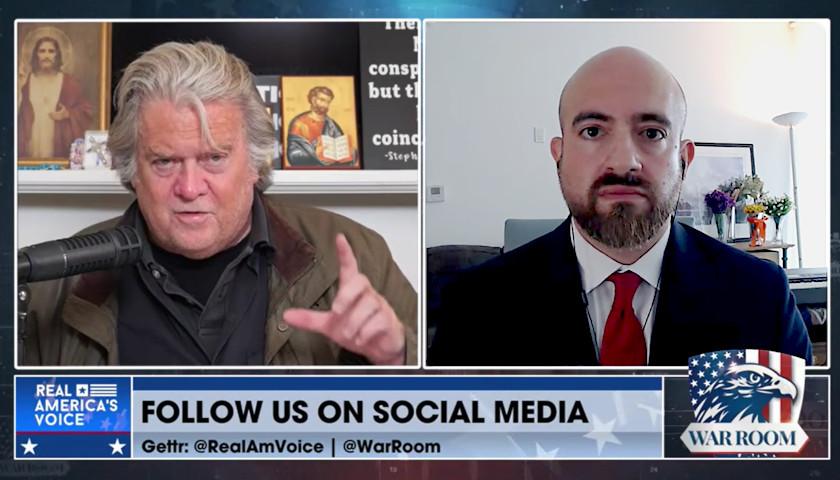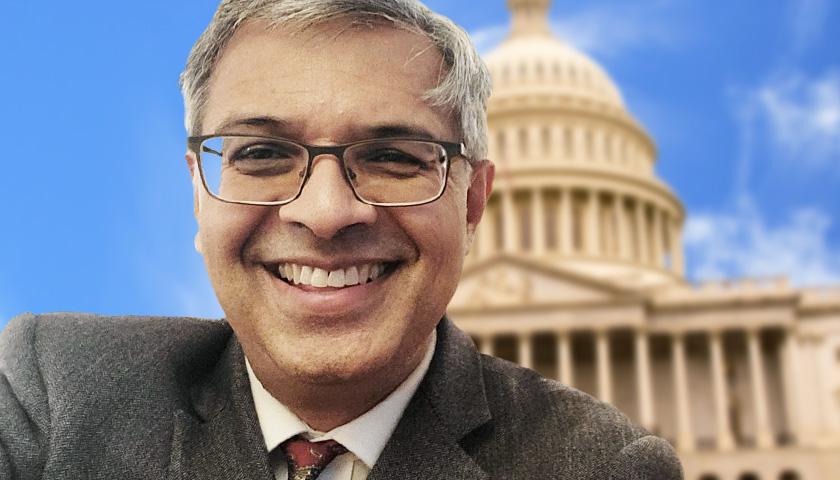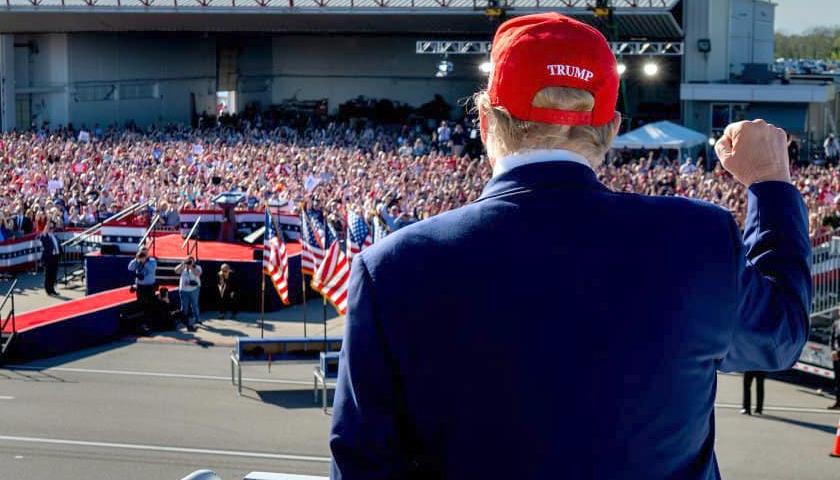Mike Benz, former Trump state department official and current Executive Director of the Foundation for Freedom Online, joined Monday’s edition of Steve Bannon’s War Room where he explained why the foreign policy establishment is the main driver of censorship in the U.S.
Benz, describing America as an “empire,” said the fight is between the managers of the American empire and the “citizens of the American homeland.”
“There’s basically an immune system of permanent Washington, which is comprised of the foreign policy establishment, the national security state, the corporate financial donors and drafters of it, and the political opportunists on both sides of the political aisle. The way that I essentially see the framing of this issue is the managers of the American empire versus the citizens of the American homeland,” Benz explained. “Since we became an empire, you could argue, in 1898 when we won the Spanish-American War and took the Philippines and became this overseas empire with territory to protect…and you could argue that American industry was always an international enterprise.”
While Benz argued that a “full-throated, red-blooded, brass-knuckled foreign policy establishment” was necessary to “protect U.S. national champions who have businesses abroad,” globalism eventually started to break down, causing a split between the globalist institutions and the middle class and the rise of populist opposition.
“Even though [a foreign policy establishment] was effectively magical for America to establish its middle class during the 20th century, by the 1990’s, globalism started to break down as our manufacturing miracle was reduced to a rust belt, as the chamber of commerce companies that benefited so much from globalism – under protection from the pentagon, state department, the CIA, and other intelligence agencies – as there began to be a split between the welfare of our globalist institutions and our citizens of the nation that they were supposed to be trickling wealth down to and serving at the electorate level. There became the growth of, essentially, populist opposition,” Benz said.
In regards to the rise in populist opposition, Benz argued that populism is “not a dirty word,” adding that it is “recourse to corruption or to institutions that have gone astray.”
“The issue, as I see it, is not Republican versus Democrat or conservative versus liberal – those are things that can turn with the tides. What we have right now is a foreign policy establishment which is impute with a department of dirty tricks, things that we’ve allowed them for centuries to do abroad to foreign governments and foreign citizens and foreign institutions, turning that inward,” Benz explained. “You have the foreign policy establishment against populism both here and all across NATO.”
“All across the board there’s been a rise in populist groups…and in each case where they are threatened by the foreign policy establishment, democracy has been completely destroyed,” Benz added. “You have an immune system with a justice department that is weaponized to arrest any populist leader who rises to power, or a lawfare system that will bankrupt them, police who won’t protect their meetings, you have the silencing all across social media, gag orders placed as they’re being put on trial so they can’t even defend themselves, their lawyers being arrested…It’s one of these things that the relationship between the managers of the American empire and the citizens of the American homeland is broken down, and that has played itself out in the story of the censorship industry.”
Continuing on the “censorship industry,” Benz agreed when Bannon described it as a “public-private partnership,” adding that there are four separate classes of institutions that work together to censor emerging opposition narratives or political challenges.
“There’s a whole-of-society mis-, dis-, and malinformation network…It takes four separate classes of institutions – federal government agencies, private sector companies, civil society institutions, and media and fact checking groups – and has them all working as a synchronized network to be able to censor emerging narratives or political groups who pose a political challenge for the foreign policy establishment,” Benz said.
When asked if he would be open to serving in a second Trump administration, Benz said he would be open to serving any president – Democrat or Republican – who stands for “free speech principles.”
Watch the full interview:
– – –
Kaitlin Housler is a reporter at The Tennessee Star and The Star News Network. Follow Kaitlin on X / Twitter.





